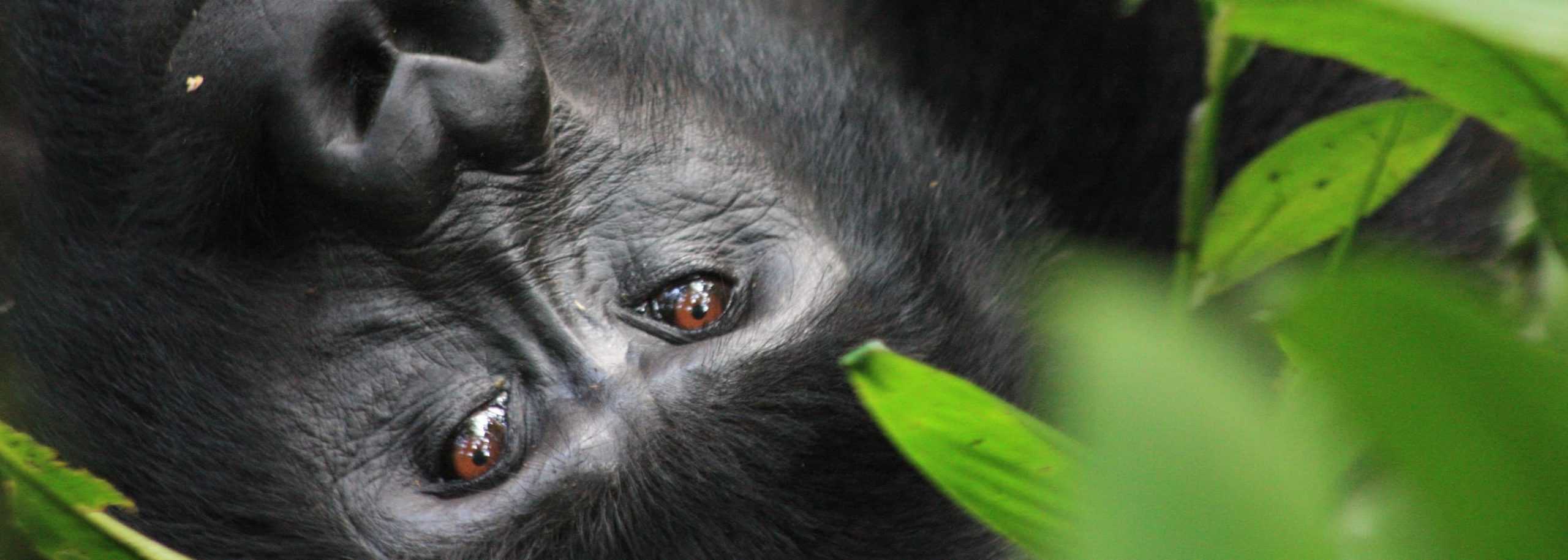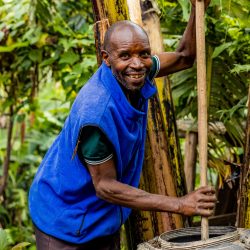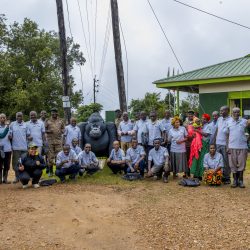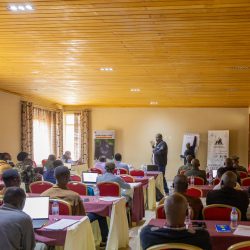HuGo – the Experiment that Continues to Pay off in Mountain Gorilla Conservation in BMCA
Blog | 4/04/24
It’s been 24 years since the first Human Gorilla Conflict Resolution Teams (HuGos) were established and involved in the protection and conservation of the endangered Mountain Gorillas in the Bwindi Mgahinga Conservation Area (BMCA).
Back in the early 1990s, the population of mountain gorillas in the Virunga Massif drastically dwindled to less than 600, partly due to Political instability in Rwanda and the Democratic Republic of Congo as well as poaching and destruction of Gorilla habitats.
This proved a real threat to the gentle giants of the forest until several intentional collaborative efforts among stakeholders.
Fast forward to 2018 and the number of Mountain gorillas in the Virunga Massif shot up to 1,063, according to the International Gorilla Conservation Program (IGCP)
One of the key contributors to the increase in numbers of the mountain gorillas are the HuGo groups.
Men and women from the park edge communities agreed amongst themselves to become volunteers (Gorilla guardians) and work closely with the park authorities to manage problem animals and champion mountain gorilla conservation.
These brave men and women often expose themselves to serious risks while dealing with problem animals. Under the current arrangement, the volunteers do not get any form of cash payments for carrying out their duties.
Henry Mutabaazi, IGCP Uganda Programme Advisor says the volunteers have often raised this concern. However, IGCP provides the groups with incentives like regular trainings, food relief, Personal Protective Equipment (PPEs) to enable them deliver on their job and access to small loans to help them improve their livelihoods. Henry explains that IGCP supported the 13 HuGo groups to start up Loans and saving schemes. The Accumulated Savings and Credit Associations (ASCAs) were given both technical and financial support of about 20,100,000 UGX to boost their portfolios.
While this might not be enough, Henry believes it motivates the teams to do their job.
A recent delivery by IGCP saw 134 HuGo group members receive an assortment of items valued at over 7000 US dollars (27 million Shillings)
The items included field protective gear, waterproof jackets, pair of waterproof trousers, high beam rechargeable torches, water bottles, gum boots, branded T- Shirts and tarpaulins to shield them from the heavy forest rains.
“These items will not only protect but boost HuGo members’ morale to carry out their work especially in the rainy season,” said Mutabaazi.
He further encouraged the group members to recruit more individuals especially from within their families through knowledge sharing and involving the older and more seasoned HuGo members who can teach and inspire young generations of conservationists.
A HuGo performance progress report of June 2022- Feb 2023 shows that the ability by HuGo groups in the BMCA to collect data on human wildlife conflict incidences remains invaluable to the Uganda Wildlife Authority.
The Warden for Ecological monitoring, BMCA, Nelson Enyagu says a shift has been registered from Mountain Gorillas being viewed as problem animals to a valuable species in the park.
The report reveals that the total number of wildlife incursion incidences in the entire BMCA between June 2022- Feb 2023 were 289.
Rubanda district registered the highest number with 99, followed by Kisoro with 97 and Kanungu registering the least with 93.
The major problem animals recorded by the HuGo groups include Elephants and Baboons.
The Community Conservation Warden for Bwindi Impenetrable National Park Joshua Masereka says the HuGo groups continue to play an important role in conservation. Masereka explains that the data gathered by the HuGo teams help UWA make informed decisions.
Joshua regrets to note that the COVID-19 pandemic affected the Authority’s budgets resulting into reduced food rations given to the HuGo groups.
Mirembe Ponsiano, a HuGo group leader in Nkuringo Town Council says he earns a living from practicing agriculture. He says that the decision to become a HuGo member was not difficult because he saw an opportunity to protect his crops from problem animals.
Mirembe appeals to the Government of Uganda to consider HuGos for revenue sharing as a special group of conservation guardians.
John Karubanda, a HuGo member from Buhoma revealed that their work is being threatened by people who think that they earn a salary and that the wild animals belong to them and UWA, therefore the HuGos should not bother them with their conservation talks.
Karubanda says some people are no longer cooperative so much so that they blame them for the crop raids on their farms.
Karubanda, however remains hopeful that the future is bright because the population of wild animals continues to increase which means HuGo efforts are paying off.




